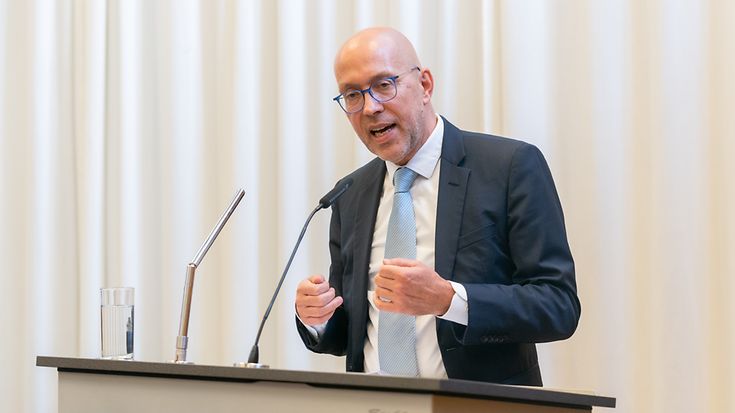“We need to recognize the potential of artificial intelligence”
Speaking at a forum on the planned regulation of artificial intelligence (AI), Jörg Asmussen, CEO of the German Insurance Association (GDV), outlined the position of Germany's business community on the topic.

According to the German business community, European AI regulation provides the opportunity to establish a global standard and to make Europe more competitive. “In principle, the European Commission is right to pursue a risk-based approach”, said Jörg Asmussen, CEO of the German Insurance Association (GDV), speaking for twelve leading trade associations in Germany.
The key, he said, was an appropriate definition of what constitutes artificial intelligence for the purposes of the planned regulatory framework – and what doesn't. Therefore, German business welcomes the fact that the Commission takes its cue from the OECD in this regard, as their definition is future-proof, allowing the addition of new AI technologies still to be developed.
“It is important to not only see the risks but also the great opportunities presented by this technology”, Asmussen said. Only if the future legal framework allows for innovation will Europe be able to compete with the US and China in the field of AI.
With regard to the Commission's proposal, the trade associations argue that only “real” artificial intelligence should fall under the new regulation. “That means no algorithms that don't contain any form of machine learning, no linear models and no statistical methods”, Asmussen specified. “Otherwise, we risk regulating software in general instead of artificial intelligence.”
The European Commission has already submitted its proposal for the world's first regulatory framework on artificial intelligence. Now, both the European Parliament and the European Council are reviewing the draft AI Act, discussing possible amendments and trying to agree on a final version. Germany's trade associations have summarized their assessments and demands in a joint position paper.
